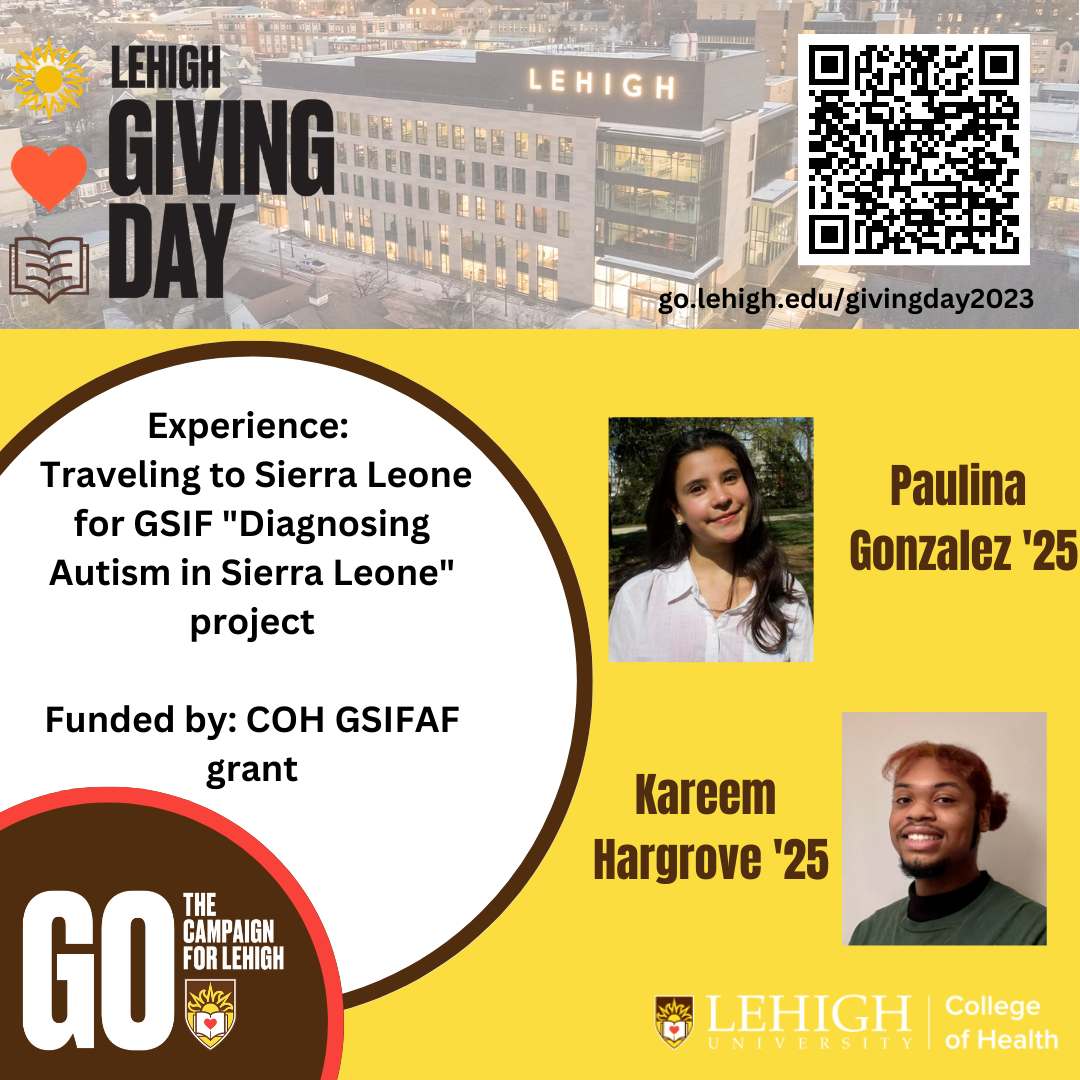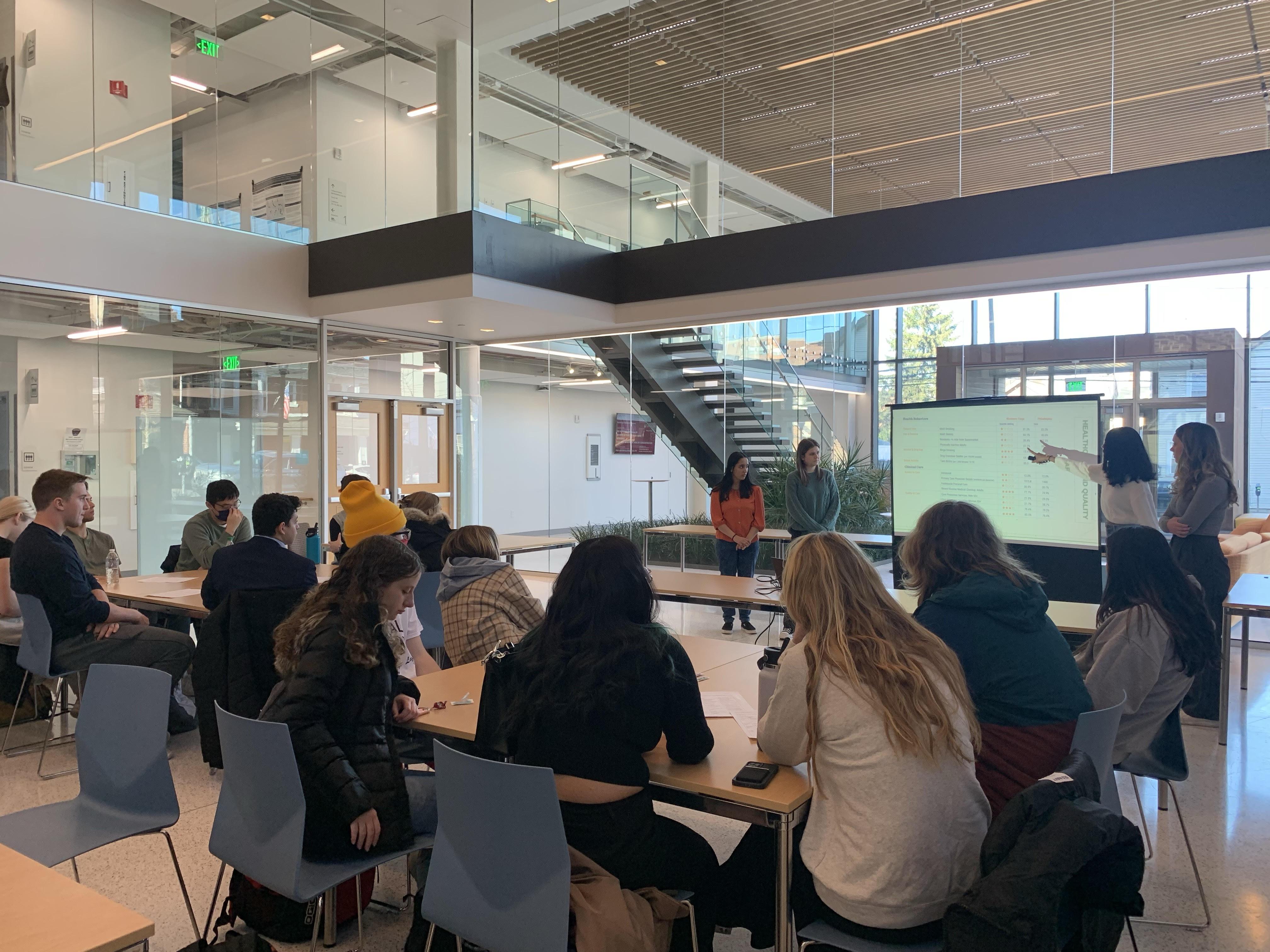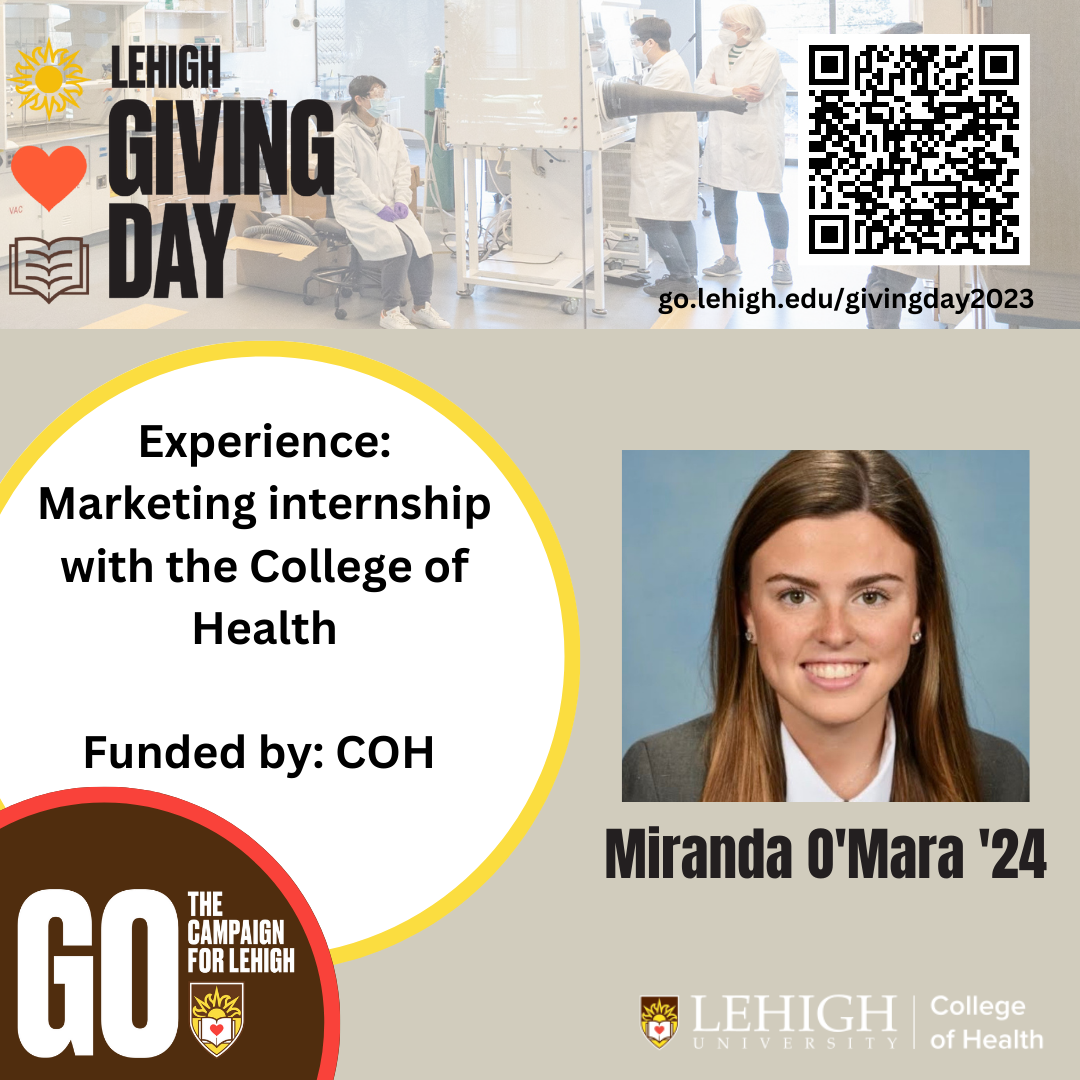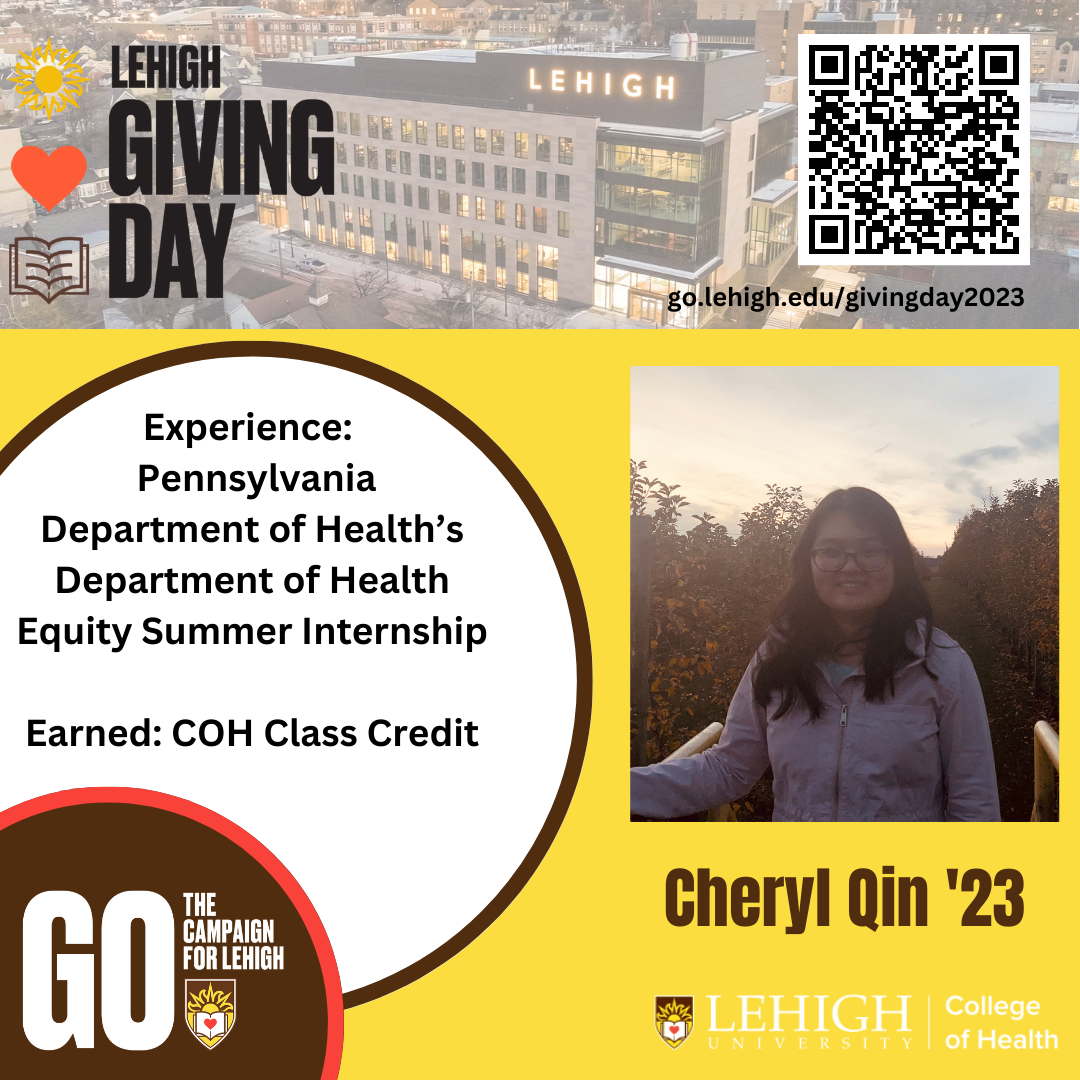
Student Experiential Learning: Paulina Gonzalez and Kareem Hargrove
For three weeks this past summer, Paulina Gonzalez ’25 and Kareem Hargrove ’25 traveled to Sierra Leone for the “Diagnosing Autism in Sierra Leone'' project. Part of the Global Social Impact Fellowship (GSIF), this allows students to participate in multi-year research projects to create new cultural change and address sustainable development challenges in low-resource countries. The Global Social Impact Fellowship Assistance Fund (GSIFAF) provided support to Hargrove and Gonzalez to help with travel and other expenses not funded by the GSIF.
According to Hargrove, Autism Spectrum Disorder (ASD) in Sierra Leone is explained through alternative means than in the West; for example, some believe it’s due to possession or simply the touch of God. The team’s main objective was to develop a culturally appropriate screener and diagnostic tool to identify those with ASD in that country. “Most screeners that currently exist on the market have been made using U.S. based populations and other Western countries, and within those countries, typically high-income populations were used to create and calibrate the tools,” he said.
For example, questions asking if your child makes eye contact with you does not work in Sierra Leone, where making eye contact means you are challenging someone, noted Gonzalez.
When they first joined the project, they created a metasynthesis of disability research in order to better understand the country and how they view disabilities. Then, in Sierra Leone, they interviewed more than 140 community health workers, teachers, parents, and community members to understand current perceptions of disability.
The cultural immersion aspect of the project was important because due to COVID, the previous year’s team had been unable to travel to Sierra Leone, Hargrove said. Through this fieldwork, they learned that Sierra Leone does not have a word for autism. The closest word used translates to “mad” or “crazy” in English.
When conducting interviews at the local hospital, Gonzalez had a particularly poignant moment. A mother was crying because her child has autism, and the doctors could not help her. Gonzalez was able to calm her down and connect her with their partners at the Sierra Leone Autistic Society. Through this experience, she realized that “what we’re doing is actually important. This woman needs to know what is happening to her children, and the doctors need to know, need to have advice to know what is happening.”
The experience abroad has also impacted Hargrove’s career path. Coming into Lehigh with the intention of becoming an Emergency Medicine or Trauma physician, he now plans to go into public health with a particular focus on economic and financial infrastructure as it relates to health care, he said.
The team’s in-country efforts would not be possible without partnerships with the Sierra Leone Autistic Society, the University of Makeni, World Hope International, and Enable the Children.


